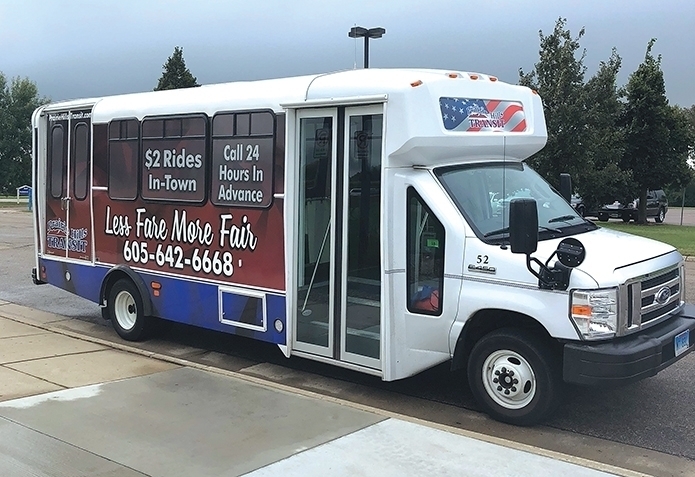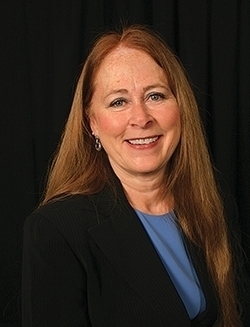
Barbara Cline founded Prairie Hills Transit in 1989 while working as the director of a nutrition program for senior citizens in Spearfish, South Dakota. While delivering meals, Cline often heard from seniors who expressed interest in travelling to a central dining location but lacked a reliable mode of transportation.

“I would ask if they had an opportunity to come into the meals program for lunch if they would like to do that,” Cline said. “The response was always yes, but they didn’t have a way to get there. Their kids were working, their neighbors didn’t have a car, they just didn’t have a way to get there.”
Operating with a grant from the state’s social services department, Cline launched Spearfish Senior Transportation with a single 1979 van operating four hours per day. This small service grew into a coordinated public transit system, today operating across 16,500 square miles. With eight bus facilities, 45 vehicles, and nearly 60 employees, Prairie Hills Transit is now the main public transportation provider for nine rural counties in South Dakota.
“At first I didn’t realize how many people had a need for our services,” Cline said. “We did an extensive amount of work to provide for those districts and over the last 30 years, we’ve grown into a company that covers thousands of square miles and serves many different districts.”
This October, Cline was inducted into the South Dakota Transportation Hall of Honor as a recognition for her continued service to the community as a provider of invaluable transportation solutions throughout western South Dakota.
“It was quite a surprise,” Cline said. “We’re making headway into statewide recognition for the role that transit plays within the community and the importance of the service that we provide.”
Cline’s induction was announced in August and a banquet was hosted by the Transportation Hall of Honor Committee in early October. As one of 94 inductees since 1972, Cline is the second woman in South Dakota history to receive the award.
The award aims to recognize those who have made a “lasting valuable or unique contribution to South Dakota’s air, highway, public transit, or rail transportation system,” according to the South Dakota Department of Transportation. Cline was one of three inductees to receive this year’s distinction, each celebrated with a plaque to commemorate the honor they receive as part of their induction.
Cline also currently serves as the president of the Community Transportation Association of America (CTAA). Cline previously served as the organization’s president from 2012 to 2014 and has acted as a CTAA board member since 2004. As an actively involved member of the Executive Committee for over 10 years Cline has continued to advocate for rural and small urban transit systems throughout the nation.
“There is such value for smaller agencies,” Cline said. “We believe that mobility is a basic human right. From work and education to life-sustaining health care and human services programs to shopping and visiting with family and friends, mobility directly impacts quality of life.”
As a new transit director in 1989, Cline heard about the organization and the support and training they provided for small rural systems across the nation. Eager to learn more about her position and the industry at large, Cline decided it was an opportunity for a small rural system in South Dakota to grow and excel.
Cline now serves as a Master Trainer for CTAA’s PASS training program and has trained both her own as well as drivers from other systems, both tribal and from other states.
“2020 has been a difficult year, and the bright spot through it all has been the hard-work our members have done to continue to provide essential trips to members of their community,” Cline said. “We are greatly looking forward to 2021, as well as to the future successes of our members.”
As Prairie Hills Transit continues to recover from the pandemic, local districts maintain reliance on their unwavering services for their essential transportation needs.
Unlike many of its industry peers, the agency has remained operational throughout the duration of the COVID-19 crisis. Cline notes that while the pandemic caused initial setbacks for their ridership, through increased safety and sanitization measures, they were able to provide riders with the confidence and security to continue essential travel.
“It’s been a good process,” Cline said. “We’re not yet back to where we were in terms of ridership, but we’ve certainly seen a significant increase. For nursing homes, senior communities, health care entities, the service that we provide is really essential and we want to continue to do that to the best of our ability.”
